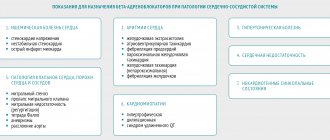The life of a modern person rushes forward at the speed of a locomotive. Events flash by like the landscape outside his window. Unfortunately, they are not always pleasant. Stress, an overabundance of incoming negative (and simply unnecessary) information, poor nutrition (hurriedly and on the go), sedentary work - all this leads to the fact that a seemingly quite strong person unexpectedly grabs his heart.
Before the age of 40, very few people think about the health of their heart. They are sure that these kinds of problems begin closer to retirement. However, very young people often come to our clinic. And we can say that in recent years the problem has grown in scale and become considerably younger. Today, heart and vascular diseases are among the most important medical and social problems.
But what to do if there is no way to change your lifestyle, and you don’t want a stroke or heart attack at all?
Of course there are ways. Even a sedentary job with daily stress, chaotic lunches and terrible traffic jams back and forth cannot prevent you from being healthy. Unless, of course, you really want it.
How to prevent heart disease?
Prevention of cardiovascular diseases in healthy people is a whole range of measures. Their essence is to purposefully change life for the better by... Alas and ah, getting rid of bad habits. Gradual, of course. And the first thing you need to do is give up such a habit as...
Smoking
If a person systematically smokes, the tone of the vascular walls increases, which is the main cause of atherosclerosis... But this is a medical fact that everyone already knows. Go ahead, quit smoking right away, if you’ve already been smoking for ten years...
But it’s not necessary right away. If it doesn't work, you can try gradually.
Try switching to lighter cigarettes and slightly reducing the number of cigarettes you smoke per day. At the same time, do not go beyond the limits you set for yourself. Seven is seven. And not a single one more! Then, learn to share a cigarette. Smoke 2/3 first, then half. And don't forget: reducing the number of cigarettes you smoke per day is still necessary. When you understand that it’s not a matter of the mythical “nicotine addiction”, but only a habit, you can say goodbye to tobacco completely.
Next, with a small gap, comes...
Unhealthy food
An abundance of fried, salty, sweet, a lot of things for the night - it’s better to quietly say goodbye to this too.
What can you do, just bread and water? - you ask. Why not at all? The list of products recommended for consumption by those who want to avoid heart problems is quite wide.
Doctors advise more fresh vegetables and lean meat. It is better to replace salt with other natural spices: basil, coriander, cumin and even pepper.
It is especially important to eat rye bread, beans, buckwheat and liver. These products contain nicotinic acid, which prevents the formation of bad cholesterol and promotes the formation of good cholesterol.
It is also worth introducing bran into your diet (prevents the absorption of cholesterol into the small intestine) and flaxseed oil (reduces cholesterol levels in the blood).
Good news for food lovers - cherries and raspberries contain salicylic acid, which prevents the formation of blood clots.
And strawberries, citrus fruits and bell peppers are high in vitamin C, which protects arteries and lowers blood pressure.
Alcohol
Many doctors recommend eliminating it completely, but some allow drinking one or two glasses of red wine per day.
Movement
It’s banal, but it really is life. In order for the cardiovascular system to function better, it is necessary to increase physical activity and maintain a normal body weight. What weight is normal for you can be calculated using a simple formula: square your height in meters and divide your weight in kilograms by this figure.
If the result shows that there are problems, do not despair. You don't have to lift weights in the gym and starve yourself. It’s enough just to eat right, limiting the amount of salt, and significantly increase the number of walks. At least 3–4 kilometers a day. It’s even easier for smartphone owners - just install the pedometer app, which can calculate how many steps you need to take. Lack of movement, by the way, can also provoke a number of other diseases and worsen the general condition of the body. For those who don't like walking, there is a great alternative: swimming or dancing.
Mental activity
Mental gymnastics, which supports communication between neurons in the brain, can also reduce the risk of disease. That's why crosswords, Sudoku, puzzles, checkers and chess are so useful.
Prevention of cardiovascular diseases
Cardiovascular disease is the leading cause of death worldwide, killing approximately 17 million people each year (according to WHO).
How to resist cardiovascular diseases? The best measure is competent prevention of heart and vascular diseases! Cardiovascular disease prevention is a coordinated effort at the community and individual levels aimed at eliminating or minimizing the impact of cardiovascular disease and related disability. Preventive measures should be carried out throughout life, from birth to old age.
Prevention of cardiovascular diseases can be divided into two groups:
Primary prevention includes a rational regime of work and rest, increasing physical activity, limiting table salt, giving up alcohol and smoking, reducing caloric intake and body weight. It is primary prevention that allows one to maintain rational conditions for human life.
Secondary (drug and non-drug) prevention is carried out differentiatedly with groups of patients with verified cardiovascular diseases in order to prevent relapses of diseases, the development of complications in people with realized risk factors, reduce morbidity and mortality from these diseases, and improve the quality of life of patients.
According to WHO, three main risk factors make the greatest contribution to the risk of sudden death: hypertension, hypercholesterolemia (dyslipidemia) and smoking.
Activities that promote a healthy lifestyle and reduce risk factors:
- Stop smoking
- Follow a low-cholesterol diet: reducing saturated fat, focusing on whole grains, vegetables (up to 5 servings per day are recommended), fruits and fish. Soft margarine, sunflower, corn, rapeseed or olive oil should be used. The total fat content should not exceed 30% of the total energy composition, and the saturated fat content should not exceed 1/3 of all fat consumed.
- Reduce table salt intake to 5 g/day. Reduce the consumption of foods containing “hidden” salt: smoked and boiled sausages, bread. Rational nutrition is a balanced, regular (at least 4 times a day) diet with limited salt intake.
- Reduce excess weight. Excess weight increases the risk of developing coronary artery disease and other diseases associated with atherosclerosis. The prevalence of overweight increases with age. To estimate your weight, use a simple formula for determining body mass index (BMI) = weight (kg) / height (m 2). BMI up to 24.9 is normal body weight; Moreover, the so-called central obesity (male type), when fat is deposited on the abdomen, is more dangerous. The risk of cardiovascular diseases increases in men with a waist circumference greater than 102 cm, in women - correspondingly greater than 88 cm. The ratio of waist circumference to hip circumference in men is greater than 1.0 and in women greater than 0.85 is a more accurate indicator of the central type of obesity. Obesity always increases the risk of vascular and heart pathologies - every extra 10 kg can increase blood pressure by 10-20 mm Hg. Art.
- Monitor blood pressure. Maintain blood pressure level no higher than 140/90 mm Hg. Art.
- Monitor lipid metabolism indicators. Patients with very high CV risk are recommended to achieve a target low-density lipoprotein cholesterol (LDL-C) level of <1.8 mmol/l. Patients with high CV risk are recommended to achieve a target LDL-C level of <2.6 mmol/l.
- Limit alcohol intake. Less than 2 standard drinks (1 dose - 12 g/18 ml ethanol) per day for men and less than 1 standard dose for women per day, which is approximately equal to 330 ml of beer, or 150 ml of wine, or 45 ml of spirits.
- Control glycemia. Level of glycated hemoglobin <6-6.5%.
- Avoid prolonged stressful situations.
- An integral part of the prevention of cardiovascular diseases is physical education. To strengthen the cardiovascular system, improve the body's adaptive abilities and increase the immune system's resistance to adverse factors, physical activity is recommended. Cardio exercises will help with this to prevent cardiovascular diseases. They speed up the heart rate, saturate the body with oxygen, burn fat deposits, and strengthen the cardiovascular system. These include: running; intense walking; bike; jump rope, etc.
If you can’t go to the gym, get off a few stops earlier every day and walk home instead of using the elevator.
Even small lifestyle changes can slow down premature aging of the heart and blood vessels. It's never too late to start living a healthy lifestyle.
After a person develops signs of coronary heart disease, risk factors continue to act, contributing to the progression of the disease and worsening the prognosis, so their correction should be an integral part of treatment tactics.
Routine preventive examination and timely visits to a cardiologist should become the norm for people at risk for developing pathologies of the heart and blood vessels. The same applies to people who note an increase in blood pressure when measuring it independently.
A cardiologist treats cardiovascular pathologies. Self-medication is strictly unacceptable. You should consult a doctor at the slightest suspicion of cardiovascular pathology, because all of them are characterized by a progressive nature of the course. The earlier the disease is diagnosed, the safer the therapy will be - the patient will need fewer medications, and the likelihood of complications will be minimized.
S.A. Timoshenko, cardiologist of the highest qualification category of the branch in the city of Surgut of the Clinical Medical and Physical Education Dispensary
Medical examination
The Best Clinic uses a variety of modern methods for diagnosing heart diseases, such as echocardiography, cardiac probing, Holter monitoring, etc. These procedures make it possible to detect the disease at the earliest stages of development, which makes it possible to begin treatment on time, saving the patient’s health and even life.
In addition, we can take a blood test for cholesterol, measure blood pressure, and get a consultation with a cardiologist.
And contact your doctor immediately if:
- you felt sudden weakness;
- arms or legs have lost sensation for no apparent reason;
- there were difficulties with pronunciation or understanding of simple sentences;
- vision was severely impaired;
- An intense headache suddenly appeared.
These are signs that indicate that there is a clear disorder with your condition. It’s better to play it safe once again than to pay for neglecting your condition with immobility for many months, or even life.
But to prevent this from happening, an ordinary healthy person can already take several simple steps: rest more, walk, breathe clean air, do not give in to bad habits... And, of course, pay attention to any changes in your well-being.
And if you need to get advice or undergo a medical examination, contact us at Best Clinic, we work seven days a week.
Heart diseases - list
Pathologies of the heart and blood vessels are an acute problem of our time, not only a medical, but also a social aspect. Mortality from CVD comes out on top, ahead of even tumors, and some of the sick become disabled. The group of pathologies is extensive. You can divide them into congenital and acquired heart diseases, a list of them:
- IHD (coronary heart disease) of chronic and acute forms: heart attack, angina pectoris, cardiosclerosis;
- arterial hypertension;
- arrhythmias;
- congenital heart defects;
- heart failure;
- inflammatory and infectious lesions, including endocarditis, myocarditis, pericarditis;
- vein diseases (phlebitis, thrombosis, varicose veins);
- pathologies of peripheral blood flow and others.
At what age should you start looking after your heart health?
If we lived in an ideal world where everyone was active in exercise, ate healthy foods, and spent plenty of time outdoors, then heart health would be something we wouldn't think about until our gray hairs turned gray. But, as the practice of recent years shows, cardiovascular diseases are getting younger, and even a 30-year-old man can experience a heart attack.
Therefore, doctors recommend monitoring your health from an early age. And in order not to treat serious illnesses, you need to be attentive to your health and adhere to WHO recommendations for leading a healthy lifestyle.
When is it time to see a cardiologist?
You should visit a cardiologist annually, starting at age 35. This recommendation is especially relevant for those who have a family history of cardiovascular disease. Especially if they caused death. Sometimes you should see a doctor earlier. If you have:
- I often felt dizzy;
- darkens in the eyes;
- ringing in the ears appears;
- makes you feel hot;
- blood pressure or pulse fluctuates
then you need to go to a cardiologist as soon as possible, regardless of age!





